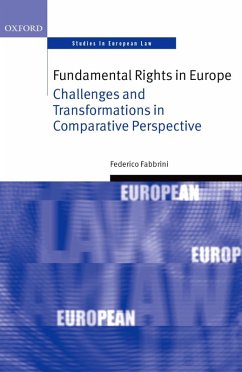The European architecture for the protection of fundamental rights combines the legal regimes of the states, the European Union, and the European Convention on Human Rights. The purpose of this book is to analyse the constitutional implications of this multilevel architecture and to examine the dynamics that spring from the interaction between different human rights standards in Europe. The book adopts a comparative approach, and through a comparison with the federal system of the United States, it advances an analytical model that systematically explains the dynamics at play in the European multilevel human rights architecture. It identifies two recurrent challenges in the interplay between different state and transnational human rights standards-a challenge of ineffectiveness, when transnational law operates as a ceiling of protection for a specific human right, and a challenge of inconsistency when transnational law operates as a floor-and considers the most recent transformations taking place in the European human rights regime. The book tests the model of challenges and transformations by examining in depth four case studies: the right to due process for suspected terrorists, the right to vote for non-citizens, the right to strike and the right to abortion. In light of these examples, the book then concludes by reassessing the main theories on the protection of fundamental rights in Europe and making the case for a new vision-a 'neo-federal' theory-which is able to frame the dilemmas of identity, equality and supremacy behind the European multilevel architecture for the protection of human rights.
Dieser Download kann aus rechtlichen Gründen nur mit Rechnungsadresse in A, B, BG, CY, CZ, D, DK, EW, E, FIN, F, GR, HR, H, IRL, I, LT, L, LR, M, NL, PL, P, R, S, SLO, SK ausgeliefert werden.

